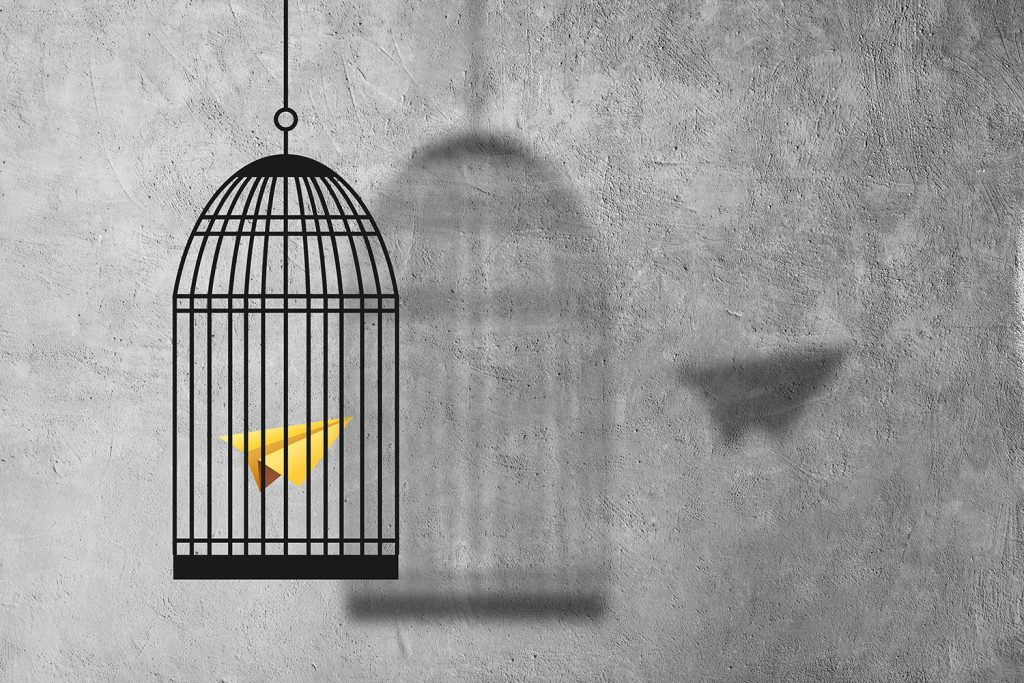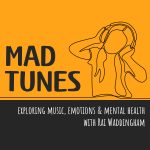Time is limited, and these days I try to orient myself around the people and initiatives that I connect with. My family and friends remain top of my list. Music, the Hearing Voices Movement and creative approaches to being with people in distress are a close second. On this site I’ve spent plenty of time talking about my connection with the Hearing Voices Movement. Today I’d like to share a little about this thing called ‘Open Dialogue’; why it means to much to me and what I think it could offer us in the mental health / social care field.
Open Dialogue is the name given to an approach developed organically in 80s/90s in Western Lapland by a group of multi-disciplinary practitioners centred around Keropudas Hospital in Tornio (including Birgitta Alakare, Jaakko Seikkula and Marku Suttela). It has many origin stories, but the one that moves me the most is the image of these practitioners listening to their discomfort and using it to guide a series of changes that – in the end – created a radically different system of care to the one I have first-hand experience of. That discomfort is something everyone engaged in mental health services as a practitioner feels, I think, if we listen to our body. It’s in those moments when we know that the service we are offering is not enough … that we are not connecting with people in a way that they find useful … that, despite our best efforts, we are part of something that can cause harm (as well as help).

I love the idea of these practitioners listening to themselves, talking with each other and – importantly – talking with, and listening to, their clients. The changes they made were influenced by the different practices and philosophies they connected with, including:
- The reflecting processes of Tom Anderson (where the family/network get to hear the practitioners talk to each other, tentatively and respectfully, about what they have heard).
- Bakhtin’s writings on being ‘dialogical’ (a concept that its own rich theory for those who are interested in it) and polyvocality.
- Reaching towards ‘withness’ rather than ‘aboutness’ thinking, suggested by John Shotter.
- Social Constructionism (the idea that meaning is developed in collaboration with others) and postmodern ideas that there are many different ways of understanding things.
Having experience of that thing that gets called ‘psychosis’, I am particularly drawn to ways of working that acknowledge that there are multiple ways of understanding the world. Ones that are genuinely interested in, and work with, people’s systems of meaning rather than imposing external views in an attempt to help.
My experience of the mental health system is that there is a very narrow meaning given to my experiences (that I have ‘schizophrenia’ or psychosis) which leads to an equally narrow range of options available to ease them. I was given medication with the aim of reducing or eliminating my symptoms. I was offered some very limited therapy to change my ways of thinking and reduce the risk of what they called a relapse. At times, I worked with an Occupational Therapist and Social Worker to address more pragmatic concerns. In short, the message given to me was that the medication will do most of the job and everything else is a clean up crew to deal with what’s left.
What the Open Dialogue Approach offers is time and space to engage with someone’s own meanings and the many different meanings that already exist in a family / social network. This is the focus of the dialogue, rather than using it as a vehicle to impose a powerful external framework on those present.
The idea of withness thinking is important here too. It would be easy for practitioners to talk ‘about’ the person, to take an expert position and puzzle over what would be best for them. Withness thinking orientates us to a more ethical way of being with people … it demands that we do our best to be alongside someone, to figure things out together. It’s about nurturing a relationship. It calls us to recognise the autonomy, wisdom and personhood of those we are trying to support. Ofcourse, we – as practitioners – may have our own ideas and perspectives about what might be happening. Yet, within this approach, our mandate is to carry these ideas lightly and be careful to avoid running roughshod over those who are actually through this situation. It requires us to know our place; to be humble.

Often, in this work, there’s talk of ‘the other’. The idea being that we cannot know ‘the other’, just as they cannot know us. To some ears, this may sound profoundly lonely. Yet, for me, it contains a refreshing blast of honesty and respect. As a patient, I have had many people say that they know what is going on inside me. I’ve had people claim my insides with all kinds of theories and labels – psychoanalytic, medical and psychological. I have had to fight to reclaim my sense of self from other people’s ideas of me. This fight has been painful, long and is still – in some sense – ongoing. The idea of respecting someone’s otherness offers us a way of guarding against such arrogance. If we cannot know the other, and they cannot know us, what can we know? We have lots to work with – we have access to all of the things that we put in the space between us – those things we show and share. We can build a bridge of understanding. We can connect in a respectful way that honours the fact that what we see and experience of each other is only an aspect of what is there. Our view from the outside can add layers to someone’s understanding of their own situation, perhaps, but it should never deny or dominate their lived experience.
So, in Tornio they found a way of combining a world view (this commitment to dialogism, polyphony and respecting difference) with a set of therapeutic practices that nurture the conditions for dialogue to happen and for people to feel heard. Importantly, these were developed alongside a system whose structure supports these practices and provides a responsive and flexible responsive to crises. It’s not perfect (nothing is). Yet, whenever I talk or write about this I can’t help but contrast this with the system I have found myself in so many times. Beyond my own struggles, I remember advocating for a friend who was in extreme distress and feeling horror at how the system seems to be structured to create barriers. They were actively unresponded to … something that my local area seems to have down to a fine art.
Yet, despite my frustration with the response many of us receive to our distress, I am acutely aware that within these services the majority of staff really want to connect. That services are full of people to deeply want to be of use to those of us who struggle. As a trainer, I’ve always been humbled working with NHS teams (and teams of workers from across the world) as we share some of the stories about how we’ve got in to this work and what it means to us. For so many of us this is not a job … it’s a vocation; something we are passionate about. Yet, the structure of services and some of the practices that are prioritised can make it so difficult to keep that fire alive. Open Dialogue, and related approaches, have so much possibility to help people work in a way that feels much more human and ethical.
These approaches are now being implemented in many parts of the world – including the US, Ireland, UK, Japan, Denmark, Germany, Italy, Argentina, Israel, Australia and Poland. One of the main drivers for this is that Open Dialogue has some of the best outcomes in the world (whilst it’s reported on for ‘psychosis’ in research journals, it’s an approach that is used for all mental health / social crises in Western Lapland). As the original Finnish Team meet with other cultures something really cool is happening – the approach is evolving, responding to the local situation. Open Dialogue, or whatever it ends up being called, isn’t something you can impose wholesale on a context. It needs to be in dialogue with local people … what practices and systems will help create the conditions for dialogue here? What voices need to be heard? Certainly, my experience of co-running a one year Foundation training programme in Israel and in Wales is that going in humbly with an open mind is an essential part of being a trainer. Just as in the practice, it feels important to be ‘with’ trainees as they wrestle with these ideas and question how they might work in their particular context. We cannot know where this will go in advance (but, as trainers, we bring quite a tight structure to help people get an embodied sense of what it means to be in dialogue and the elements of practice that can be building blocks to creating dialogical spaces).

One of the most exciting developments, to me at least, is the meeting of Open Dialogue (a practitioner-led approach) with the survivor movement and those of us who have personal lived experience of distress/diagnosis/coercion. This has, in many ways, added a more socially conscious element to many Open Dialogue informed implementations (and has influenced the practice of Open Dialogue back at its roots in Tornio). With it has come a growing recognition that if we truly want to hear all the voices, there are some voices that are quieter than others (and some voices that are marginalised or cannot be heard even by well-meaning practitioners). As someone with ‘lived experience’, I am often able to hear extra layers in what is being said in a network meeting – in hearing them, I am able to respond to them. I have worked alongside someone whose lived experience is that of a mum/carer. In turn, she was able to hear different things to me. One set of ears is not superior to another … it simply increases the range of things said in a meeting that can be heard and responded to (and, I hope, attends to those voices that so often silenced in our society).
There is a lot work to do, still. I’m looking forward to seeing where this approach goes in the next few years. I still have, in my heart, a wish to combine some elements of the Hearing Voices Movement Approach with Open Dialogue in a services aimed at supporting young people and their families/networks in my local area …. but that is a long goal.
If you have any questions about Open Dialogue, or want to share some of your own thoughts/experiences/ideas – please do. It would be great to hear from you.
With warmth, Rai
In case you’re interested:
With Mia Kurtti, who works in Tornio within an Open Dialogue team, my training partnership (Dialogue (R)Evolution) are hosting some 2-day workshops on this approach (called Open(ing) Dialogues). We’re repeating them across different time zones, so hopefully we will be able to connect with people in different parts of the world.
If you want to find out more about this, see: https://dialoguerevolution.com/training/opening-dialogues/
You can also download and share our flyer: https://jmp.sh/TXadLsg





Recent Comments